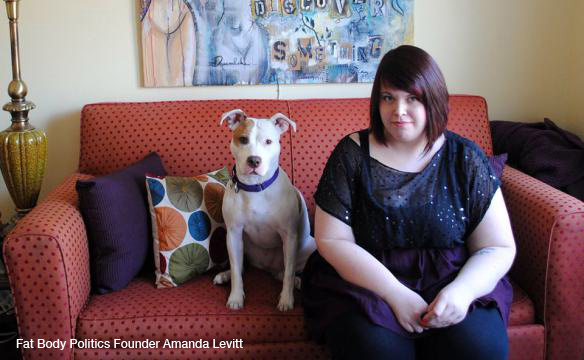
Let's Leave Off the Label
TheWEIGH staff report
Special K called it, and then took a bold stance against so called "fat talk."
Was it a profit motivated mission?
While many say yes, does it really matter?
Stigma against fat people permeates our culture, according to recent research which seemingly indicates that Americans might not be quite ready to "Shhh the Fat Talk!" Not yet anyway.
Justice isn't blind, according to the Rudd Center for Food Policy and Obesity at Yale University, which published a study suggesting that male jurors issued clearly biased decisions in cases involving plus-size defendants, which resulted in a higher incidence of guilty verdicts.
Female jurors were more compassionate, according to the researchers who reported that female jurors displayed no prejudice against so-called "fat" defendant.
Such stigmas are par for the course, according to Rebecca Puhl, one of the Yale researchers who co-wrote the study.
Even trained professionals, considered among those least likely to harbor bias, do.
Research that shows therapists' perceptions and prognoses for their obese clients may be swayed by body-size stereotypes, according to a report published in the American Psychological Association's Monitor on Psychology.
Health professionals--including psychologists--who specialize in obesity often used words such as "lazy," "stupid" and "worthless" to describe obese people they come into contact with in their personal and professional lives, according to a September 2003 study published in Obesity Research .
"Thinness has come to symbolize important values in our society, values such as discipline, hard work, ambition and willpower. If you're not thin, then you don't have them," she said.
Previous research by Puhl and her associates found that prejudice against fat people was pervasive and translated into inequities across broad areas of life.
"Thinness has come to symbolize important values in our society, values such as discipline, hard work, ambition and willpower. If you're not thin, then you don't have them," Puhl said in a published interview with Huff Post.
But should they?
That's a "no," according to Fat Body Politics Founder Amanda Levitt, who uses social media platforms to educate the public against fat bias.
Such thinking instills self-hate according to Levitt, who worries that Americans are over- obsessed with being thin.
As new voices begin to weigh in on the debate, perhaps we will begin to shush such talk.






 Leave a comment
Leave a comment